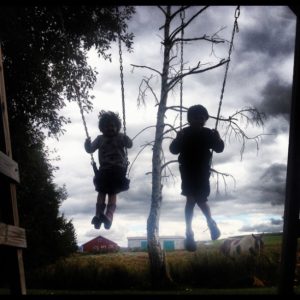World Environment Day is June 5th. Catherine Ross, Ask a Tech Teacher contributor, has some great suggestions on how to celebrate that with children and students in a way that shows them how to be responsible stewards for the only planet we have. I think you’ll enjoy her article:
***
We live in a millennium where technology has disrupted many of the traditional systems and ways. Cultural mores have morphed because of technology, leaving a discontinuity between the old and the new. Instead of snuggling into their grandmother’s lap and listening to dragon stories, do not be surprised to see kids persuade their grandmothers to play dragon games. Interestingly, grandmothers have coped and how; many senior women love gaming!
Wealth has been generated because of technology, but this has also increased the gap between the rich and the poor. Changes caused by technology have been beneficial, but there are side effects like loneliness and lack of social skills which individuals and society as a whole find hard to cope with.
Why live responsibly
The rapid growth of technology and industrialization has deteriorated the quality of what is core (and free) to humanity on Earth – air and water. We don’t know how to make any of these things the way nature makes them, but we sure know how to contaminate them. The good thing is this – there is a growing realization about what’s happening and people are trying to adopt sustainable lifestyles in many parts of the world. After all, we cannot afford to dirty the plate we eat out of.
Kids Swinging Over the Barn by Ano Lobb
Catching them young
As parents, it’s our responsibility to leave a clean world behind for the next generation. Additionally, it’s also our responsibility to teach our kids to live responsibly so that they can do the same for the generation after them. It’s best to lead by example. If we try living responsibly, it becomes a way of life for our kids. Here are 3 simple ways to live responsibly with nature:
- Observe and learn
When you take the kids out, point out interesting things in nature – how birds might know how to maintain distance between themselves when they fly, get kids to see how the Sun seems to rise in a slightly different direction over the months, talk about how seeds can look dead but are dormant for years, get them to think of how a tree might send water to the topmost leaf from its roots, how termites build very tall homes with no noise, using local materials and no concrete (distinctly different from ours!) or how earthworms live underground – and get the kids to see things around them with new eyes. Use websites and apps to get information which other concerned denizens have gathered about nature. If kids see a flower or a plant they want to know more about, use Google lens to know more.
- Live cooperatively
Parents frequently learn of the grave wrongs earlier generations committed while helping their kids with school work! Older people might remember how dumping waste into the river Cuyahoga, started off spontaneous fires in its waters, eventually leading to stricter laws for ensuring water quality of rivers. This planet belongs to all the creatures who live on it. Kids with good water sense will go on to live sustainable lives. Over time they will understand that we need to share resources because all creatures live an interdependent life. For instance, humans need clean air and water, which requires forests because they process our CO2. This means we should protect our forests.
- Reduce your footprint
One of the most important and difficult things to do is to reduce our carbon footprint. This requires a lot from grownups. They need to reduce consumption driven throwaway culture. Reduce the use of plastic and tissue. Go back to the old ways of carrying handkerchiefs and napkins. Carry your snack in a box you can reuse. This can be made easy by getting kids wondering about where the garbage goes. Parents track their kids through their phones. Well, kids can checkout trash | track systems to see how garbage can be tracked. Discover how NASA is using data from floating buoys to simulate the garbage islands in the high seas.
There’s a lot that needs to be done, but the best part is this: many have already begun. We need to encourage our kids to spend time outside the house enjoying the bounties of nature. This helps them sharpen their senses, appreciate what we have and become aware of their interconnectedness with everything else in nature.
Author Bio:
Catherine Ross is a full-time stay-at-home-mum who believes learning should be enjoyable for young minds and blogs at Kids’ Learning Games. An erstwhile elementary school teacher, Catherine loves coming up with creative ways through which kids can grasp seemingly difficult concepts easily. She believes that a ‘fun factor’ can go a long way in enhancing kids’ understanding.
Jacqui Murray has been teaching K-18 technology for 30 years. She is the editor/author of over a hundred tech ed resources including a K-12 technology curriculum, K-8 keyboard curriculum, K-8 Digital Citizenship curriculum. She is an adjunct professor in tech ed, Master Teacher, webmaster for four blogs, an Amazon Vine Voice, CSTA presentation reviewer, freelance journalist on tech ed topics, contributor to NEA Today, and author of the tech thrillers, To Hunt a Sub and Twenty-four Days. You can find her resources at Structured Learning.






































2 thoughts on “World Environment Day: Living Responsibly with Nature”
Comments are closed.